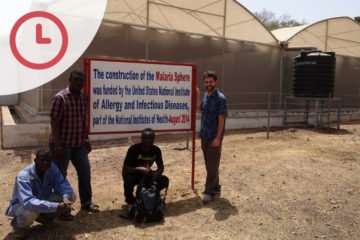Podcast Available on iTunes and Spotify.
Welcome back.
Joining me today is Dr Deborah O’Neil, the CEO of Novabiotics, a leading clinical-stage biotechnology company focused on the design and development of first-in-class anti-infectives.
She recently delivered a talk on the pharmaceutical industry as it is today, and offered an insight into what it could become, with a focus on so-called ‘personalised medicines’. She also addressed the worrying issue of antimicrobial resistance and discussed new cancer therapies being approved by the NHS.
And she’s here with me now. Deborah, thanks for joining me.
Great to be here, pleasure.
In your speech, you discussed how the drugs which we use every day, so paracetamol and aspirin, wouldn’t be approved today due to their safety profiles. Do you think that this increased focus on the safety of drugs is perhaps blocking new, innovative and potentially life-saving treatments from being approved?
I don’t think it is blocking, it does make it a little bit more challenging to develop these very new therapies but I would say the regulatory agencies are very much prepared to work hand in hand with the companies that are developing them. They are on the same side and they are there to get new and more innovative medicines onto the market. But for sure, safety is first and foremost, efficacy second. As I mentioned in the talk, also more emphasis on how the drug actually works, more information about its mechanism of action, which is going to be linked to the safety and the efficacy anyway but something that in the past wasn’t necessarily a focus.
And you mentioned in your talk that you think that over the past five years we’ve seen a shift in the pharmaceutical industry from focusing on profits to focusing on the patient. Would that be a fair understanding of this shift?
Yes, I think so. The emphasis more on precision, personalised medicine, not mass market drugs that you want to get out there for everyone to take, the new pricing models that I mentioned as well. Even though profit absolutely is still important and essential because there won’t be a pipeline without it, it’s access. I think it’s all about market access, patient access and it’s absolutely much more front and centre in the industry now.
And talking more about those personalised medicines, like the cancer CAR-T therapy where your re-engineering the body’s immune cells, where do you see this progression heading in the future?
Much more as a focus of drugs that we will all be taking. So, rather than I guess pharmacology and chemical-based drugs, biological therapies and those that are targeted, not just to the disease but that particular patient’s disease, will become more and more commonplace. Lots and lots of clinical trials of these, lots of them are in development. I think we’ll see an exponential growth of that type of medicine. Again, the regulators are working alongside the companies because progress is very rapid. Things like the pricing of those therapies as well because, if you think about it, you’re making one therapy that only works for one patient in the world, how do you price that? But these first drugs have already got through those barriers and paved the way for other ones. Those are going to be the future of medicine in a number of conditions for sure.
And going back to those drugs which we use every day and in hospitals, if we don’t start to create new drugs now to replace those what sort of impact are we going to see when resistance to those drugs grows?
A major problem. In some areas, so cancer which I talked about, the future is looking very bright. There’s a lot of developments, a lot of progress, these exciting new medicines are really focused. Where we’ve taken our eye off the ball, as an industry, is drug pricing and incentives to develop these therapies is in the infection space. It is very scary what could happen if there is no intervention in this. This fairly bleak landscape where we’re not seeing any new novel classes coming through. I think a lot of those barriers are now falling away, people are now very aware of the consequences in the future if we’re looking at effectively a post-antibiotic era.
Dr Deborah O’Neil, thank you.
Pleasure, thank you.


